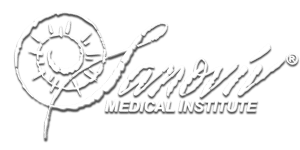By Oscar Puig CN
All sugar is similar to us in taste, but is there such a thing as a healthy sugar?
Glucose, or sugar, is a vital component of our daily diet. It contributes one of the largest sources of energy to our body, including our brain. There are many natural sugars that also provide essential nutrients such as B complex vitamins and iron, but this doesn’t mean that we are going to eat them abundantly. The same nutrients can be found in other foods. For example, vegetables are an excellent source of sugars/carbohydrates but will not stress our system by giving a quick blood sugar response and they provide more nutrients. Like many other food categories all sweeteners are not created equal. It is important to know the healthier choices for sugar and sweeteners, and to understand their benefits.
The average American consumes a total of 130 pound of sugar per year, which is equal to 140 grams per day that equals to 3 cans of soda per day. The American Heart Association recommends consuming no more than 9 teaspoons per day, but the reality is that an average adult consumes 22 teaspoons per day while the average child consumes up to 32 teaspoons per day. It is not hard to understand why the US leads the world in childhood obesity according to the OECD. Other neighboring countries are imitating the US and following closely behind. Mexico is second in the world and Canada is eleventh with respect to childhood obesity rates. Children with a high consumption of sugary soft drinks are more likely to be overweight. Currently, more than one-third of US adults are obese; and obesity related conditions such as heart disease, stroke, type 2 diabetes and cancer are among the leading causes of preventable death.
According to Dr. Lustig, a pediatric neuroendocrinologist at the University of California in San Francisco, an obesity expert and author of – Fat Chance, sugar, processed food, obesity and disease-, “Food was just as abundant before obesity’s ascendance. The problem is the increase in sugar consumption. Sugar drives fat storage and makes the brain think it is hungry, setting up a “vicious cycle.”
Sugars are found in whole foods in the form of simple glucose, fructose and galactose such as those found in dietary carbohydrates like vegetables, fruits and grains. These are classified has monosaccharides. They are easy to digest and fast to get to our blood stream. They are packed with nutrients and beneficial fiber because they come from whole foods. However, our food industry has created non-nourishing natural and artificial sweeteners that can be damaging to the body. The best examples of this would be processed sucrose and high fructose corn syrup (“natural” sweeteners) and sucralose and aspartame (artificial sweeteners). Although naturally-derived, sucrose and high fructose corn syrup present in most processed foods can increase the probability of impaired liver function and fat deposits (fatty liver). Non-alcoholic Fatty Liver disease is quickly becoming epidemic in our society, especially among young adults. Artificial sweeteners, such as sucralose (Splenda™) and aspartame (Equal™) are neurotoxic (toxic to brain cells) and can also create problems in the body, such as migraine headaches, seizures, memory loss and weight gain, just to name a few. A comprehensive review on the dangers of artificial sweeteners is provided in the book Sweet Deception, by Joseph Mercola D.O.
In any chronic, degenerative disease condition, such as diabetes, insulin resistance, obesity, heart disease or cancer, the best advice is to avoid all processed sugars and artificial sweeteners. It is sometimes difficult to remove all of these from your diet so you may wonder what sugars are acceptable in small amounts?
Stevia, a plant extract, is considered one the best natural sugar substitutes on the market. It is much sweeter than table sugar and you can cook with this plant extract. Since it does not have an impact on blood sugar, it is one of the best options for those with diabetes, insulin resistance, and problems with Candida yeast.
Xylitol is a sugar alcohol derived from many sources such as fiber from fruits and vegetables, corn husks sugar cane and birch. It has a sweetness that is comparable to table sugar. It has a negligible impact on blood sugar, contains very few calories and it has many health benefits. Xylitol helps to fight cavities, re-mineralize teeth and is naturally antibacterial and anti-fungal. You can also cook with it but be aware that some people are sensitive to Xylitol and it can produce bloating, gas or diarrhea if ingested in higher amounts.
Raw Honey is considered to be a super-food because of its high content of antioxidants, vitamins, minerals, enzymes and phytonutrients. It has been used for centuries for healing different ailments and is widely known for its antibacterial and anti-fungal properties. Raw honey is also rich in prebiotics (friendly bacteria) that can help to maintain a healthy intestinal environment. Since it may impact blood sugar, it should be consumed in moderation and may not be appropriate for diabetics.
Coconut palm sugar is made from the sap of coconut palms trees. It is rich in minerals compared to brown sugar and is a natural source of B-complex vitamins. Preliminary research shows this sugar has a low to moderate effect on blood sugar, but overall is quite healthy in moderate amounts.
Amasake is most common in Asian countries. This sugar alternative is made from fermented whole brown rice and brown rice Koji. It is ideal for people with digestive issues; since it is found in a predigested form, containing a rich amount of active enzymes. It is a good source of B-complex vitamins and minerals, has a pudding-like consistency and is ideal for children. Since it may have an impact on blood sugar, it may not be appropriate for everyone. It is also not widely accessible in the US.
Organic Sugar is grown without the use of any pesticide or chemical and comes from organic sugar cane. It is naturally darker than refined sugar, meaning beneficial nutrients have not been stripped away. The darker color shows that it still contains small amounts of molasses. Organic sugar should be used only in moderation.
Blackstrap molasses is the unprocessed part of white sugar. This is the part that contains all the beneficial nutrients, including minerals like Iron and Calcium. It is alkalizing for the body and adds wonderful flavor to foods such as soups. It has a higher sugar rating than the other natural sugars and should only be consumed as organic.
You will find a wide variety of sweeteners in the marketplace. They can be found in processed foods as an ingredient, or promoted as “the next best thing.” Be sure to do your homework when you come upon a sweetener with which you are unfamiliar. Keep in mind, even the “healthier” sugars may cause problems if consumed in excess. For best results, keep a variety of healthy sugars on hand, rotate them within your diet and consume all sugars in moderation.
SOURCES:
http://www.forbes.com/sites/alicegwalton/2012/08/30/how-much-sugar-are-americans-eating-infographic/
http://www.nationmaster.com/graph/hea_obe-health-obesity
http://products.mercola.com/sweet-deception/
http://www.ucsf.edu/news/2009/06/8187/obesity-and-metabolic-syndrome-driven-fructose-sugar-diet
Ludwig DS, Peterson KE, Gormakaer SL. Relation between consumption of sugar-sweetened drinks and childhood obesity: a prospective, observational analysis. Lancet, 2001, 357:505–508.
Colditz G. Economic costs of obesity and inactivity. Medicine and Science in
Sport and Exercise, 1999, 31(Suppl. 11):S663–S667.
http://www.medicalnewstoday.com/releases/135271.php
http://www.organiclifestylemagazine.com/healthy-sugar-alternatives/
http://www.mitoku.com/products/amazake/healthbenefits.html
http://www.sugar.org/sugar-basics/types-of-sugar.html


Thank you for this wonderful post. Much appreciated.
At last some great evidence I can show to family and friends who have listened to me harping on the dangers of aspartame for many years with a condescending look! So thank you. I read all labels when shopping and the list of things to omit is growing.
Fabulous information. Thank you for breaking it down so its easy to understand.
Thanks for sending this info on Facebook. I hope all of my friends read it.
I would love to hear your opinion regarding Agave as a sweetener.
You overlooked maple Syrup. It’s a whole food isn’t it and quite healthy in terms of replacing sugar?
Thanks for this fabulous information. Can you comment on Maple syrup please.
Great information, and easy to understand. Very well done Sanoviv, thank you!
Gracias Sanoviv, por esta información, si toda la gente estuviera informada, habria menos enfermos. Acabo de terminar un curso de Trofologia, y esto me lo han hecho incapie, que el azúcar refinada es uno de los venenos que matan. Mil gracias por esta publicación.
I always look forward to reading your emails and sharing the information with family and friends!
Thanks, Maria.
Thank you for the information about sugar.I try to avoid to use sugar
if possible ,cause i have type 2 diabetic.One day my dream will come true to visit Sanoviv .for a healthy spa.I will make it a goal on my 67th
Birthday
More power to USANA
Elaine Fernandez-Cosico
I agree, there are a number of other sugars which have not been mentioned in this article:
Maple Syrup
Agave Syrup
Coconut flower blossom nectar sugar
Tagatose
Thaumatin
Brazzein
Would be good to know an evaluation on these as well, but common sense already makes it clear that if a sugar has calories and if it has an impact on blood sugar, then it must be consumed in moderation. As simple as that. And of course, if it is artificial, then it is best avoided altogether.
Very helpful thanks.
I’d like more information on
a) Raw honey. How do we buy it – does organic count?
b) Maple syrup. Which is healthiest – No. 1 light, No. 2 medium or No. 3 dark?
Great article. This was easy to understand and I can’t wait to share it!
Thanks for this clear explanation of sugars! I WAS confused…this helped a bunch! I so appreciate all your efforts to teach us! Thank YOU!